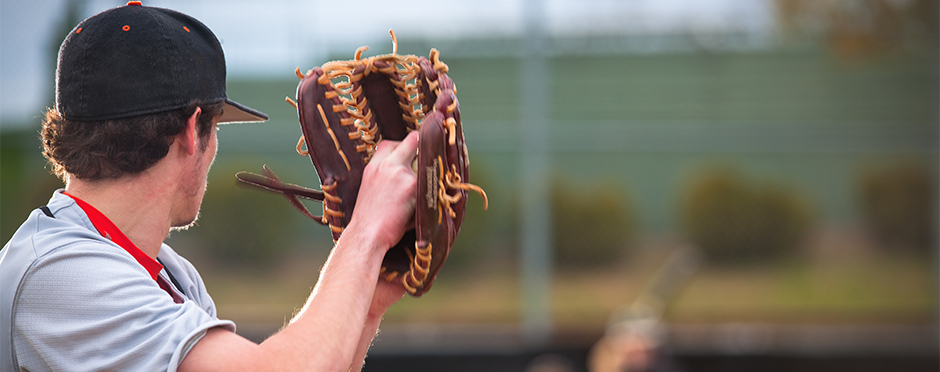
Baseball and Softball: Pain After Pitching
Leave a CommentSome discomfort in the throwing arm is common after a pitching session. After all, consistent overhead throwing is hard on the shoulder and elbow. But what is normal discomfort? What pains should be concerning to baseball/softball athletes? What pains should be examined by a professional? Find out more with the guide below:
Acceptable Discomfort
Discomfort described as soreness that spreads around the entire shoulder, and/or in muscles such as the biceps, triceps and forearm is to be expected. Oftentimes, pitchers will experience discomfort in their arm a day or two after throwing in a game.
To assist with the pain, athletes can consult their athletic trainer or physician. Oftentimes ice or over-the-counter anti-inflammatories are the recommendation. That said, the pain should subside on its own and discomfort should not be present for the pitcher’s next outing. If the pain continues, the athlete should consider scheduling a complimentary injury screen at their nearest Athletico location.
Concerning Pain
Pitchers should pay close attention to pain in specific areas of their shoulder or elbow. This is because pain in specific areas may indicate tissue breakdown and lead to a significant injury.
Pain in the elbow, for example, is concerning because of the lack of muscles crossing over this joint to provide stability. Instead, the elbow relies on its bone to bone anatomy and ligamentous structure. This means that pain in the elbow may signify some kind of irritation to the bones or ligaments, such as the ulnar collateral ligament (a.k.a Tommy John). Overuse of the throwing arm via high pitch counts and lack of rest, as well as improper throwing mechanics are usually the causes behind specific elbow and shoulder pain.
To assist with the pain, baseball and softball players can consult their athletic trainer or physician to see if treatment options like ice or over-the-counter anti-inflammatories are recommended. Athletes should also get plenty of rest. In fact, athletes should rest until throwing and/or pitching is pain free in order to avoid further injury.
Another treatment option for pain in the elbow or shoulder is to work with an Athletico overhead throwing specialist. Through a detailed history, and/or video throwing analysis, an Athletico specialist will differentiate between pain caused from overthrowing, mechanics or both. From there, an individualized treatment plan will be developed, with the goal of returning the athlete to the field pain free.
Injury Pain
Pain that significantly alters a pitcher’s performance, changes their mechanics, and does not go away with the before mentioned conservative measures (rest, ice, anti-inflammatories, mechanical adjustments) may indicate a significant injury has occurred. Tears in the shoulder labrum, rotator cuff, elbow UCL, and avulsion fractures of the medial epicondyle are a few examples of injuries that significantly interfere with a pitcher’s performance. Diagnosing injuries of this magnitude most often will require the expertise of an orthopedic specialist. Treatment for these injuries may be as simple as a few bouts of physical/occupational therapy, or as complex as a surgical procedure with a lengthy recovery. That is why it is so important to be preventative when you start noticing the pains outlined above.
Better Safe than Sorry
Some discomfort in the throwing arm is common for pitchers, but every athlete is different. This is why it is important for each athlete to pay attention to their body and give themselves enough rest to recover from the wear and tear that occurs in practices and games. Moreover, if the pain doesn’t seem to be subsiding or is getting worse, it is a good idea to take the next step and contact Athletico Physical Therapy for a free assessment.
The Athletico blog is an educational resource written by Athletico employees. Athletico bloggers are licensed professionals who abide by the code of ethics outlined by their respective professional associations. The content published in blog posts represents the opinion of the individual author based on their expertise and experience. The content provided in this blog is for informational purposes only, does not constitute medical advice and should not be relied on for making personal health decisions.

